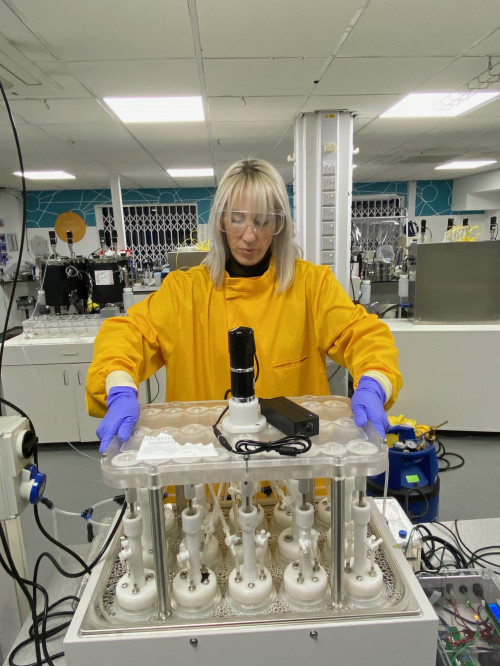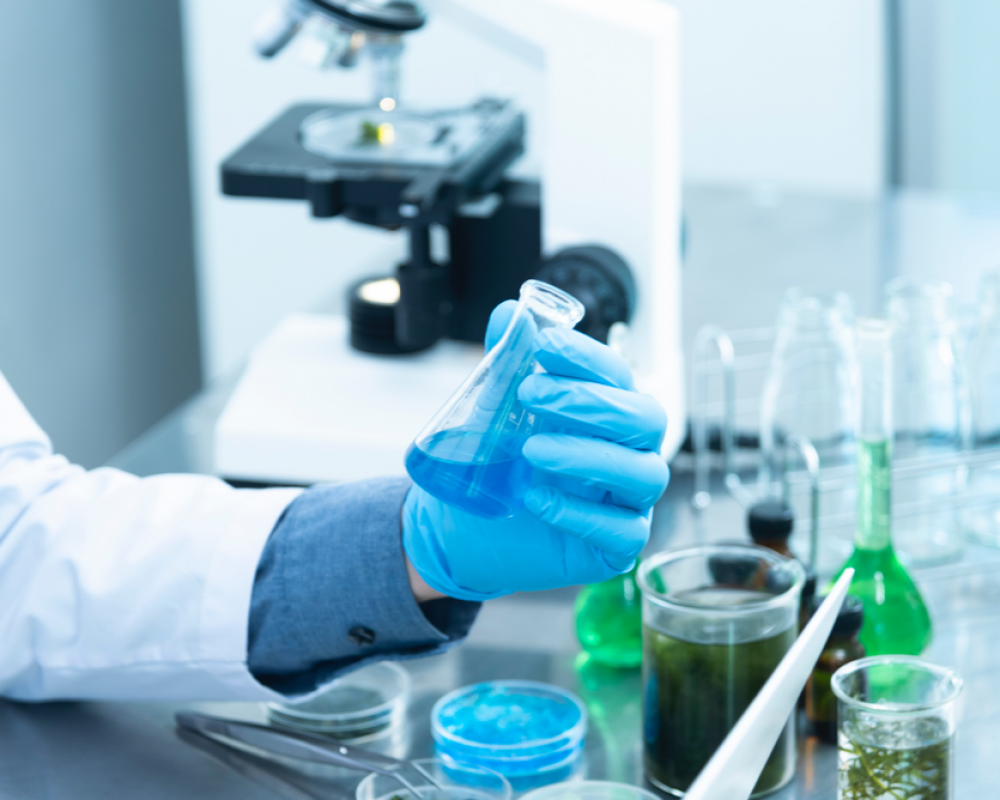
Exciting equipment update for the H2Boost Project
Here at the Biorenewables Development Centre, our newly installed batch BMP system comprises 30 individual vessels, a game-changer for monitoring biogas yield during anaerobic digestion (AD) and dark fermentation.
Continuous trials for better insights
The continuous AD vessels are a key component, allowing us to mimic real-life commercial AD plants with a steady flow of feedstock. This not only aids in determining biogas production but is also crucial for ongoing dark fermentation in the H2Boost project.
Screening pretreatments for optimal results
Thanks to this innovative system, we're actively screening various pretreatments of food waste. This process helps us identify which methods yield the most biohydrogen.

Monitoring hydrogen and CO2 production
The continuous AD vessels are also instrumental in closely monitoring hydrogen and CO2 production. This detailed analysis is essential for understanding the efficiency and environmental impact of our biohydrogen production methods.
Dedicated to sustainable solutions
At the heart of the project is a commitment to sustainable solutions. The data gathered from these vessels will guide us in developing environmentally friendly and economically viable practices for biogas and biohydrogen production.
Future-focused innovation
This marks a significant leap in our research capabilities, propelling us towards a more sustainable future. Stay tuned for more updates as we continue to push the boundaries of innovation in renewable energy.
Newly installed batch BMP system
Mimicking real life AD plants
Understanding efficiency & environmental impact of biohydrogen production methods
H2Boost is funded by the Department for Energy Security and Net Zero and will provide dedicated leadership focused on delivering security of energy supply, ensuring properly functioning markets, greater energy efficiency and seizing the opportunities of net zero to lead the world in new green industries.
The funding from the Hydrogen BECCS Innovation Programme comes from the department’s £1 billion Net Zero Innovation Portfolio which provides funding for low-carbon technologies and systems and aims to decrease the costs of decarbonisation helping enable the UK to end its contribution to climate change.
